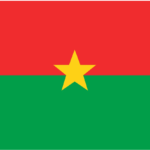Adama Lami Yusuf’s upbringing in the Limawa community of Nigeria’s Niger state was marked by her unique complexion. Often called “oyibo,” a term used in Nigerian local parlance to refer to anyone of European descent, Adama faced intense stares from people as she walked around her neighbourhood, Despite this, her family was very supportive, treating her no differently from her siblings and cousins.
“My friends also didn’t treat me differently, likely because of my witty personality. I always had a response ready before anyone could say anything,” she recalled. This helped her avoid becoming a victim of bullying. She was very confident and knew little about albinism. “When I saw someone with skin like mine, I would run and hide. Sometimes, it even gave me nightmares.”
Albinism, a hereditary disorder that causes the skin, hair, and eyes to produce less melanin, affects about 1 in every 20,000 people globally. Those with albinism are left with very pale skin and hair, often facing discrimination and social stigma as a result
Adama faced a share of discrimination due to her pale skin colour. Once in primary school, her teacher called her “partially blind” because she struggled with her vision. This wounded her self-esteem, and her grades took a hit. She would come close to the bottom of the class. “Throughout my early school days, I had no idea what the teachers were writing on the board until my parents got me glasses,” Adama told Prime Progress.
By the time she was in secondary school, her grades began to shape up. Her teachers’ positive feedback bolstered her confidence. Yet the tag “Oyibo” persisted.
Her admission into Usmanu Danfodio University, Sokoto, in 2014, resulted in her first and worst sunburn. Constantly washing clothes in the sun caused her face and wrists to turn red.
“Sokoto is always sunny,” Adama said. “The experience was very bad. I couldn’t lay on my back for days, and it took nearly two weeks to heal. My skin even peeled afterwards. All I could do was use my cream and keep a cold compress on it.”
In her third year at university, Adama was invited to join a disability rights organization, where she would meet others with disabilities. The encounter opened her eyes to society’s perception of disability, which left her feeling uneasy. “I didn’t want to be identified as a disabled person. It just didn’t sit well with me,” she said.
Becoming girls’ advocacy leader
During her NYSC stint, Adama ventured into volunteering. After her debut poetry performance at a TedxMinna event, she became passionate about honing her craft and expanding her networks. Her first stop was the Arewa Genius Hub, where she served as financial secretary.
In 2022 Adama joined the Salma Attah Foundation for Women and Girls Support as an advocacy and mobilization officer. She had been a participant in the nonprofit’s Girl Code bootcamp before landing this role.
As a spokesperson for the foundation’s outreach programs in schools and communities across Niger State, Adama enlightens young girls about gender and menstrual hygiene.
“The role truly changed how I saw myself. I realized that my voice could be a tool for the change I wanted to see in my society. I recognized the power of my words and my ability to influence others,” she told Prime Progress.
Today, Adama’s most rewarding moments are when girls meet her during outreach programs and share how they are inspired by her. She takes great satisfaction in positively influencing the lives of girls in Niger state.
Adama Lami Yusuf grew up in the Limawa community in Nigeria's Niger state, where she experienced unique challenges due to her albinism. Despite supportive family and friends, she faced discrimination and social stigma. Her condition, which results in very pale skin and hair, affected her vision, leading to academic struggles until she received glasses.
Adama's confidence grew during secondary school, bolstered by positive feedback from teachers. However, her university years in Sokoto were marked by severe sunburns, highlighting the dangers of prolonged sun exposure for individuals with albinism. Her involvement with a disability rights organization in her third year broadened her understanding of societal perceptions of disability, though she was uncomfortable with being labeled disabled.
Through volunteering, Adama found her passion in advocacy. She joined the Salma Attah Foundation for Women and Girls Support, where she educates young girls about gender and menstrual hygiene. This role has empowered her, allowing her to influence and inspire girls across Niger state positively. Today, Adama finds fulfillment in her advocacy work, mentoring young girls and promoting societal change.






